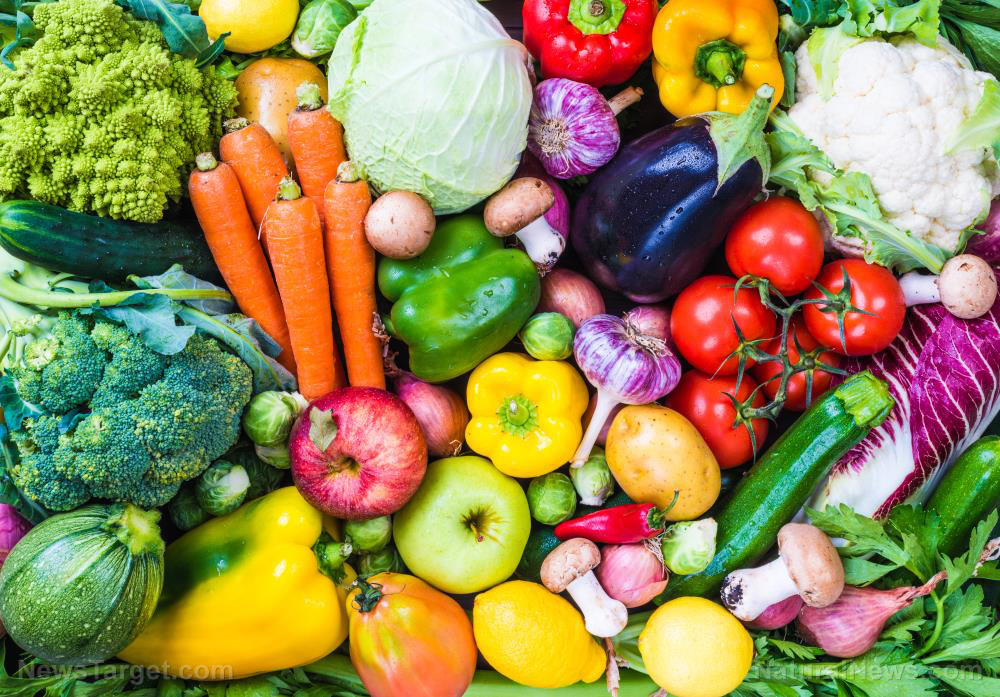Fresh is best for your heart: Expert warns about the dangers of processed food
07/10/2019 / By Melissa Smith

Eating fresh food is the key to keeping your heart healthy. The Department of Health and Human Services (HHS) reports that heart disease is the leading cause of death for men and women in the U.S., and every year, heart disease causes one in four deaths.
Cardiovascular disease, such as heart attack, stroke, or high blood pressure, typically develops because of too much consumption of sodium and cholesterol. To protect against cardiovascular problems, it is recommended to reduce your sodium intake. This means cutting back, or even eliminating, your consumption of processed food, which is known to be high in sodium, among other unhealthy substances.
“So, when you think about canned food, those TV dinner-type foods, anything that’s packaged and processed, a lot of times, there will be a decent amount of sodium in those,” said Laura Acosta, a University of Florida Institute of Food and Agricultural Sciences (UF/IFAS) lecturer in dietetics in food science and human nutrition. “So really just try to stick with your fresh, minimally processed food – fruits and vegetables are a great way to start.”
Additionally, you must maintain healthy blood cholesterol levels. High blood cholesterol can also result in heart disease. The Centers for Disease Control and Prevention estimates that about one in three adults in the U.S. has high blood cholesterol.
Dietary cholesterol and blood cholesterol are different things. Acosta explained that dietary cholesterol refers to the foods you consume, while blood cholesterol involves how much cholesterol you have in your body.
You can lower your blood cholesterol, particularly low-density lipoprotein (LDL) or “bad” cholesterol, by limiting your intake of saturated fats and increasing your consumption of omega-3 fatty acids, monounsaturated fats, and dietary fiber. Here are other heart-healthy foods that you can add to your diet:
- Berries – Berries contain heart-healthy phytonutrients and soluble fiber. They are also loaded with antioxidants, which help remove free radicals that damage heart cells. Snack on blueberries, cranberries, raspberries, or strawberries on their own or add them to yogurt.
- Dark beans – Dark beans like kidney or black beans contain high amounts of fiber, folate, vitamin B6, potassium, and phytonutrients like quercetin and saponins – all of which support heart health. They’re also cholesterol-free, which makes them an even greater heart-healthy food.
- Fatty fish – Fatty fish like salmon, herring, mackerel, trout, and tuna are rich in heart-healthy omega-3 fatty acids.
- Flaxseeds – Flaxseeds are good for the heart because of their omega-3, fiber, and phytoestrogen content. Consume them in ground or milled form to reap the greatest benefit.
- Nuts – Nuts like almonds and walnuts contain healthy fats that are good for the heart. They also help satisfy your hunger.
- Red, yellow, and orange-colored vegetables – Carrots, red peppers, sweet potatoes, and squash are rich in carotenoids, fiber, and vitamins that are good for your heart.
- Spinach – Spinach is one of the best heart-healthy foods. Not only are they rich in omega-3s, but they are also packed with antioxidants, B vitamins, and fiber.
- Tofu – Adding fresh tofu in a stir-fry with fresh vegetables makes a heart-healthy meal. Tofu is an excellent plant-based protein source that you can use as a substitute for red meat, which contains saturated fats.
More reasons why fresh is better than processed
Choosing fresh foods not only promotes improved health, but also increases nutrient and flavor profiles. Processing foods, such as canning, drying, or freezing, can depreciate their quality of nutrients, fiber, flavor, and even natural color. It may also remove the food’s antioxidant content. Moreover, processed food contains hidden ingredients – such as added sugar, sodium, preservatives, additives, flavoring, and coloring – that are bad for your health. Buying fresh, raw produce is also cheaper than choosing processed items. The more steps needed to process a food item, the more expensive it gets.
Sources include:
Submit a correction >>
Tagged Under:
This article may contain statements that reflect the opinion of the author
RECENT NEWS & ARTICLES
COPYRIGHT © 2017 SUPER FOODS NEWS





















